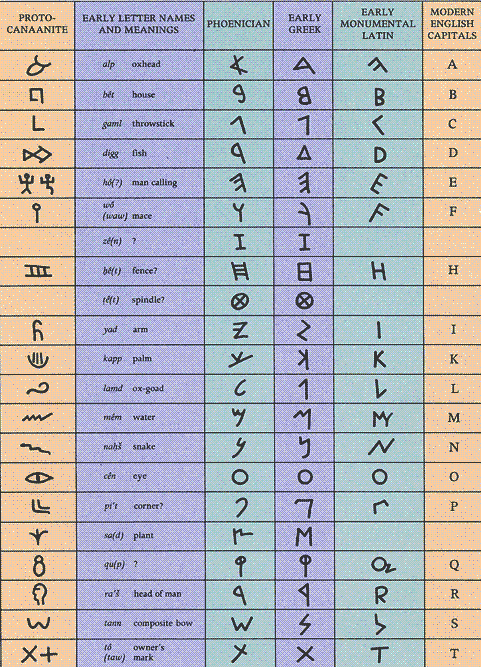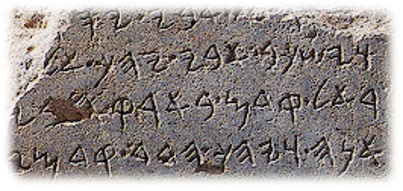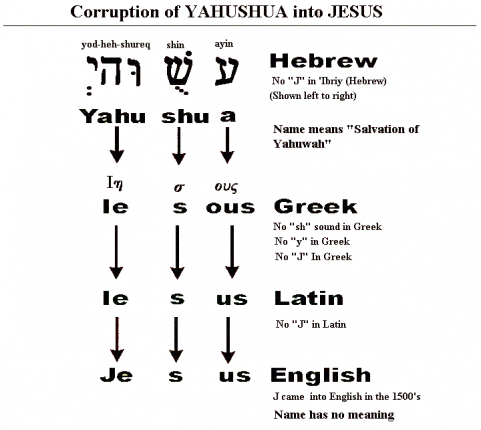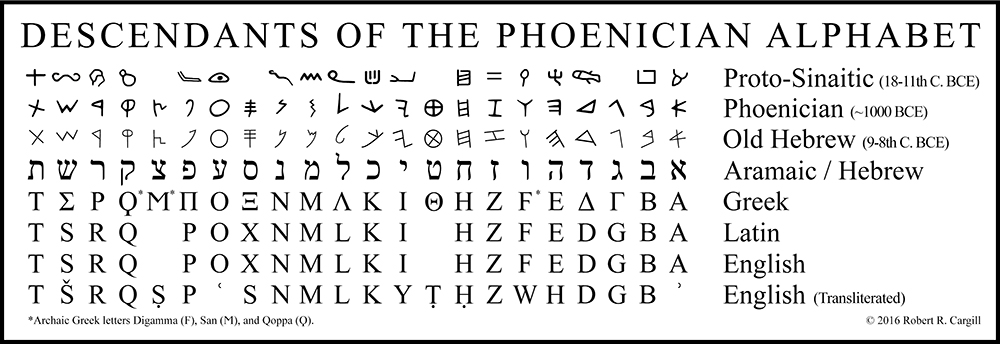In the Name of Jesus Christ

And there is salvation in no one else, for there is no other name under heaven given among men by which we must be saved.
Acts 4:12 (Paul)
 In The Name of Jesus Christ
In The Name of Jesus Christ
In our modern times, across the Christian world, devotees and followers, of the Christ, hold to be; dear, sacred & divine, powerful and mighty the name of The Christ, which they call Jesus. Today this name Jesus is the universally excepted name used for the Christ, overshadowing, superseding and totally replacing all other names, used in the past to call upon, or to refer to the Christ, the Son of God.
Today billions of Christian across the world swear be this name Jesus and this name alone, even if those Christians, don’t speak the English language. Everything asked for from God, attempted in life or proclaimed in righteousness, by the majority of today’s Christians, regardless of their denominations is done so, specifically in this name of Jesus the Christ.
Ironically and possibly more peculiar and interesting is the fact that even those none English speaking Christians, who have used and called upon The Christ, The Son of God, by other names, some for hundreds and others for at least 2000 years, from the dawn of Christianity. Have today abandoned their own, some times unique name for the Christ, in favour of the modern English name Jesus. This would include the Orientals, Eastern, Roman Catholic, Greek Orthodox and others, who formally used Issos (Coptic), Iisus or Isa (Eastern), Iesus (Latin Roman), Iēsous (Greek), Yesos, Yisus, Yesus, Yeshua, Yoshua and many other derivatives to call on the name of The Lord. All of who today comfortably and religiously call upon, as well as use the modern name of Jesus, as the corner stone of their faith.
But where does the name Jesus actually come from?
 Although Jesus is the modern accepted name for The Christ, amongst the majority of today’s Christians, it is now generally understood that this name is very new. Made popular first in the English Bible, after the publishing of the 1611 KJV and the centuries that followed. Approximately 1600 to 1700 years, after Yahshuah the Man, actually walked the Earth.
Although Jesus is the modern accepted name for The Christ, amongst the majority of today’s Christians, it is now generally understood that this name is very new. Made popular first in the English Bible, after the publishing of the 1611 KJV and the centuries that followed. Approximately 1600 to 1700 years, after Yahshuah the Man, actually walked the Earth.
Although many argue that the name Jesus is a direct translation of the Hebrew name Yeshua and that since the language we speak today is not Hebrew, but English, it is perfectly fine and to some extent even logical that we use the English translation of this name to identify our Saviour, in these modern times. This no doubt would be fine, if it were true that the translation was direct, or if the person using this name happened to speak English. But to replace all other names regardless of language difference and as a blanket name to contain the belief and spectrum of Christian devotion and worship, we think further consideration should be taken to assess exactly; What this names is, where it came from, when it came about and how long, have Christians actually been using it? Surely it is only after this assessment that if we should determine whether Jesus is the correct or an accurate name to be used to communicate with, or proclaim the Person, Name & Gospel of Christ.
Is Jesus the name we should use
 First of all we should ask ourselves, is it really fine, logical or even sensible, to use any translation at all, when we can quite easily pronounce his original name, as it would have been pronounced in his day, in his language, even if we are speaking English today, i.e. Yeshua or Joshua? Possibly not, but this is for the individual to decide for themselves. However let use look at the origin of the name Jesus, so at least the individual can make a fair assessment, before acceptance and usage.
First of all we should ask ourselves, is it really fine, logical or even sensible, to use any translation at all, when we can quite easily pronounce his original name, as it would have been pronounced in his day, in his language, even if we are speaking English today, i.e. Yeshua or Joshua? Possibly not, but this is for the individual to decide for themselves. However let use look at the origin of the name Jesus, so at least the individual can make a fair assessment, before acceptance and usage.
Even Yeshua or Joshua themselves, although possibly much better choices, they are not a definite precise pronunciation of the name of the Son of God, The Christ, nevertheless we should ask ourselves, why are Christians not using these or some other deviation, changing the vowels, of these names, but are so intent on calling upon Jesus.
Why we don’t use the name Jesus?
 The background to this modern popular name Jesus, although today standardised, as the name for the Son of God, across the globe, together with its true, real & physical heritage, forces us to distance, not only ourselves from its use, but also from its attribution to person of Christ too.
The background to this modern popular name Jesus, although today standardised, as the name for the Son of God, across the globe, together with its true, real & physical heritage, forces us to distance, not only ourselves from its use, but also from its attribution to person of Christ too.
As the name Jesus has today so many negative connotations attached to it, as well as the terrible, ungodly and soul destructive things that has been done in its name over the years, by so called Christians. Notwithstanding the fact that most relevant to this website and African people in particular, is the use of the name Jesus on the first British Slave Ship, commanded by Sir John Hawkins in 1565, called the Jesus of Lubeck, used to transport, kidnapped Africans to the New World, in the name of Christ. It is also important to note that this ship, is one of the earliest authenticated documented use of this name in British history and the world.
English Translation of Hebrew Yoshua
The name Jesus is supposedly the English translation of the Hebrew name; Yoshua, Yeshua or Yashua, the root name from which we get the name we currently use Yahshuah. However the English translation is clearly Jeshua or Joshua, as the Y and J are interchangeable.
The Importance of the Name
 So as we are often taught the importance of the name and the power it carries, it is therefore important that we know exactly; What this name is? What it means? and where it comes from? Many people, particulary English speaking Christians, teach that the changing of letters or sounds through translation of words into different languages is a unavoidable phenomena. Therefore the name Jesus as currently used is but a logical and authentic process of the phonetic changes from Hebrew to Greek to Latin and finally English, i.e. Jesus.
So as we are often taught the importance of the name and the power it carries, it is therefore important that we know exactly; What this name is? What it means? and where it comes from? Many people, particulary English speaking Christians, teach that the changing of letters or sounds through translation of words into different languages is a unavoidable phenomena. Therefore the name Jesus as currently used is but a logical and authentic process of the phonetic changes from Hebrew to Greek to Latin and finally English, i.e. Jesus.
We are told that the name Yeshua or Joshua in English means God Saves or Salvation of God. This is a fitting name to call the Christ, who represents the spirit of God and God the Word, Incarnate. However although fitting, not completely accurate in Hebrew, who use the shorten name for God, from which this name supposedly eminates, as Yah or Jah in English.
Therefore Yahshua would be a more accurate pronunciation, i.e Yah = God’s shortened name and Shua = Salvation, therefore Yahshua means literally God’s Salvation.
The Root of the Name Jesus
As for the name & word Jesus this word or title has a different history and heritage and can be illustrated thusly;
English J equals to the Greek I, Hebrew Y & Phoenicia Z
J – English from the Hebrew Y that the Greek & Romans translated as I, however the Greek borrowed the letters in their alphabet from Phonetician, whose I was converted to the Greek Z. Hence why all of these letters are interchangeable dependant on what language your speaking, ie. Jesus, Iesus, Yesus & Zesus, see table below.

The Table and Letters
As can be seen here from the above table, demonstrating the evolution of our modern Alphabet, the 13 Phoenician letter, which evolved out of the Proto-Sinaitic letter, is the Phoenician symbol for Z, slightly slanted with an extra line in the middle that involved into the Hebrew, Greek, Latin, Old English I and finally Y. However when we look at the 16th letter, we see that the actual Phoenician symbol for I, evolved into the Greek, Latin, Old and the New English Z. With further observation we can also see that the actual Phoenicia symbol for Y, letter 17, actually evolved into the Hebrew, Greek, Latin & Old English letter for F and our modern letter W.
 From this analysis we can see that the letters I, Z, Y and even W and the modern J, have had a very extraordinary, confusing and without question conflicting history. This becomes more significant and possible of the greatest importance, when we consider as we are now that these letters form and make up the most sacred names in the Christian faith, e.g. YHWH, YaH, Yahshua.
From this analysis we can see that the letters I, Z, Y and even W and the modern J, have had a very extraordinary, confusing and without question conflicting history. This becomes more significant and possible of the greatest importance, when we consider as we are now that these letters form and make up the most sacred names in the Christian faith, e.g. YHWH, YaH, Yahshua.
What is also very important to know and of the utmost importance and significance in using the above table in this analysis or in tracing the evolution and history of our modern alphabet, is that although seldom admitted or highlighted is the fact that the Phoenician letters, symbols and alphabet evolved directly from and out of the Ancient Egyptian Hieroglyphic symbols. Shown and referred to in the above table as the Proto-Siniatic, which is the Oldest attested Cannanite script, which as the name suggest, was specifically Egyptian and evolved is the Egyptian Sinai Peninsular.





